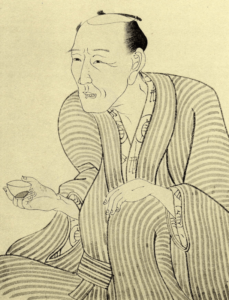Click here for the Chinese version
点击这里并查看中文版本
What does Japanese "Yabai" (やばい) mean?
In Japanese cartoons, TV dramas, movies and so on, you might find that young people often say “yabai” (やばい).
What does Japanese "yabai" (やばい) mean?
In fact, "yabai" (やばい) is not a trendy word in recent years.
Well, let us explore the word of Japanese "yabai" (やばい).
気になる内容にすぐに移動
The earliest expression of “Yabai” (やばい)
We can see the earliest expression of "yabai" (やばい) in the latter half of Edo-era. From 1802 to 1814, Jippensha Ikku (十返舎一九) wrote "Footing It Along the Tokaido" (東海道中膝栗毛, Tokai-douchu hizakurige), and we can see the usage of "yaba" in it.
It shows that the expression of "yabai" (やばい) has more than 200 years history!
おどれら、やばなことはたらきくさるな
You guys, don't do "yaba" things
十返舎一九 「東海道中膝栗毛」, Jippensha Ikku "Footing It Along the Tokaido"
- 十返舎一九: [じっぺんしゃ いっく / Jippensha Ikku] is the name of author
- 東海道中膝栗毛: [とうかいどうちゅう ひざくりげ / Tokai-dou-chu Hiza kuri ge]
also known as 弥次喜多道中: [やじきた どうちゅう / Yaji Kita Dou-chu]

From 1920 to 1930, Yasunari Kawabata (川端康成)wrote the serialized novel called "Asakusa kurenai dan" in the newspaper. Here, we can see the expression of "yabai"(ヤバイ).
やばい (Hiragana) = ヤバイ (Katakana)
私と歩くのはヤバイ(危い)からお止しなさいつていふんだ
I am saying "Don't walk with me because it is "yabai"(危い = dangerous)"
川端康成 「浅草紅団」, Kawabata Yasunari "Asakusa kurenai dan"
- 川端康成: [かわばた やすなり / Kawabata Yasunari] is the name of author (award winner of Nobel Prize in Literature)
- 浅草紅団: [あさくさ くれない だん / Asakusa kurenai dan]
Did you get it?
The original "yabai" means "bad thing" or "dangerous".
It can also express "get panicked".
Why does "yabai" mean "bad thing" or "dangerous"?
The origin of “やばい” [yabai]
In fact, we are not able to find the exact theory of the origin, but there are two mainstreams.
!["やばい" [yabai]的起源](https://blog.enjo.life/wp-content/uploads/2022/11/japanese-yabai-zh-3.png)
Theory 1. Prison
Long time ago, chief wardens had been called "厄场" [やば / yaba], and criminals such as thief don't want to have any relations with them.
When a criminal found that he cannot escape anymore, he must be sent to a prison and meet the wardens. We can easily imagine that the criminal cries "yabai!".
An additional situation in this theory is in prison. A criminal was using the argot of "yaba" to hide his crime and tell another criminal.
Theory 2. Shooting yard
The traditional shooting yards (of bow and arrow) were called "矢场" [やば / yaba].
Because some "yaba" were the gathering place of bullies, most people did not get close to there to avoid the investigation of officials.
"やばい" [Yabai] - Changes in expression
You may have heard young people say "Yabai" while eating delicious food. What happed?
In the 1990's, another sense of "Yabai" came out, and it is used among young people to express "super good" as an adjective.
!["やばい" [yabai] - 表达的变化 - 表达程度极高,表示"超级好"](https://blog.enjo.life/wp-content/uploads/2022/11/japanese-yabai-zh-4.png)
Although the elderly cannot accept it, the new expression is becoming popular. "Yabai" has two meanings in recent years.
There are similar cases in English as well. For example, "sick" or "badass" means "very good" or "very impressive" in slang.
In the long history, languages have been changing. Younger generation creates the new story.
Many new usages have come out, but most of them have disappeared, only a few usages are remained. Language is alive!




![Have you heard やばい(ヤバイ) [yabai] in Japanese? What does Japanese "Yabai" (やばい) mean? Is the word popular among young generation? - 日本語の「やばい(ヤバイ)」の意味と由来を英語で解説](https://blog.enjo.life/wp-content/uploads/2023/03/japanese-yabai-en.png)



